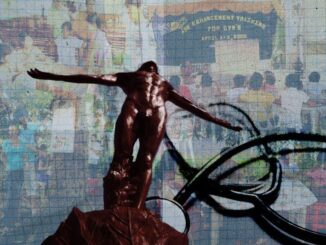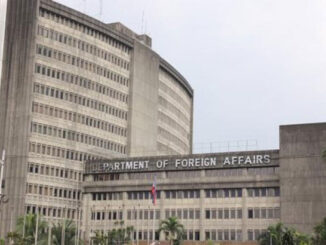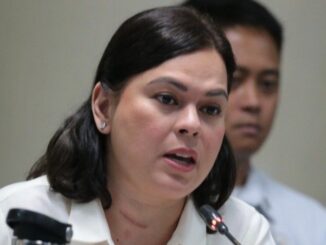
MANILA, Philippines — The university that gave its “best and brightest” in the struggle against ousted dictator Ferdinand Marcos Sr. is now facing criticism for its apparent foot-dragging in the creation of a museum to honor the victims of martial law.
Chuck Crisanto, head of the Human Rights Violations Victims Memorial Commission, asked the House appropriations committee on Tuesday, September 3, to help “nudge” the University of the Philippines (UP) to finally sign the turnover document that will give it control of the funds for the museum.
UP has been reportedly sitting on the key document for the creation of the Freedom Memorial Museum since June 2023. “If I look at the number of months delayed by UP, it’s now 20 months,” Crisanto told lawmakers.
What went before. In 2018, the University of the Philippines signed a memorandum of understanding with the commission that allocates 1.4 hectares of land in the Diliman campus for the creation of the museum.
This required UP to relocate its community affairs offices elsewhere, which Crisanto said the university was slow to do in last year’s budget deliberations.
On Tuesday, Crisanto said the commission wrote to the university in June 2023 requesting a handover ceremony to finalize UP’s relocation for the museum. However, it took eight more months for UP’s vice president for legal to finish working on the handover document.
Crisanto said he met with Jimenez in April, who said the UP side was ready to sign the handover document. But their plan to hold the turnover ceremony on June 12 — Independence Day — did not materialize.
“The first thing UP needs to do is sign the handover or turnover document from the memorial commission to UP. This means they can now fully control the assets that we have provided and infuse from their own budget P50 more million to complete the landscaping of these buildings for the staff of the maintenance office,” Crisanto said in a mix of English and Filipino.
“Without them signing that handover or turnover document, UP cannot allocate money to finish the relocation,” he added.
Stonewalling. Puzzled by the delay, Rep. Arlene Brosas (Gabriela Women’s Party) described UP’s actions as akin to “stonewalling” the project, which was originally expected to open by 2022 in time for the 50th anniversary of the martial law declaration.
“Remember, September 21 is coming up, and the timeframe we want is very important because the martial law survivors will ask, ‘Where is it now?’” Brosas said.
“Given their age now, some of them are already very old. At least they could see the museum that their children, grandchildren, and future generations will visit so that what happened in the past will not be forgotten. That’s how important the museum is,” the lawmaker added.
Crisanto said the commission is in constant communication with the university’s leaders, some of whom were martial law victims themselves.
“Some of them actually are victims of that time period. The executive vice president was incarcerated in Bicutan for two years. So their heart is in it,” Crisanto added.
But it’s the university’s bureaucratic red tape that is delaying the opening of a museum that the university itself had hyped as part of its annual commemoration of those who struggled against the Marcos Sr. dictatorship.
“I cannot understand the bureaucracy of UP, why it takes them so long to accept a donation of P80 million, when that is something that is positive… I cannot explain their seeming footdragging on this matter,” Crisanto said.
While the commission will reach out again to the university, Crisanto said he also needs the help of Congress to push UP to fulfill its responsibilities, especially as the funding for the project has already been secured.
“When I asked if the P50 million still needed to be requested from Congress or the UP budget, I was told: ‘Do not worry. The money is already in the coffers of UP,’” Crisanto said.
Rep. Mark Go, chair of the House higher education panel and a member of the UP Board of Regents, vowed to raise the matter in the next meeting of the board.
UP’s activism. Marcos Sr.’s declaration of martial law in 1971 marked the start of a 14-year dictatorship that led to tens of thousands of Filipinos killed and forcibly disappeared.
The regime’s brutal crackdown on dissent — which targeted activists, political opponents and civilians who spoke against Marcos Sr. and his allies — included well-documented human rights abuses such as torture and arbitrary arrests, among others.
In 2018, under then-university president Danilo Concepcion, UP declared September 21 of every year as the UP Day of Remembrance to commemorate the members of its academic community who resisted the dictatorship — both the deceased and alive.
“UP has contributed many of its best and brightest to the struggle against dictatorship and despotism… These UP heroes of the resistance – both the fallen and the living – deserve to be especially remembered, and their memory and legacy enshrined for younger Filipinos and UP students to emulate,” the UP proclamation read.





Be the first to comment